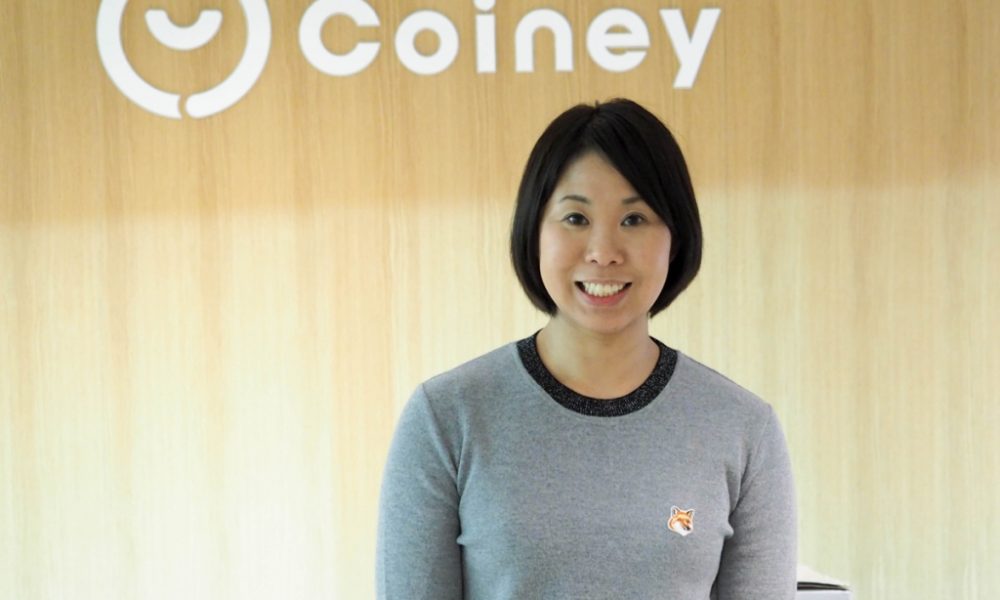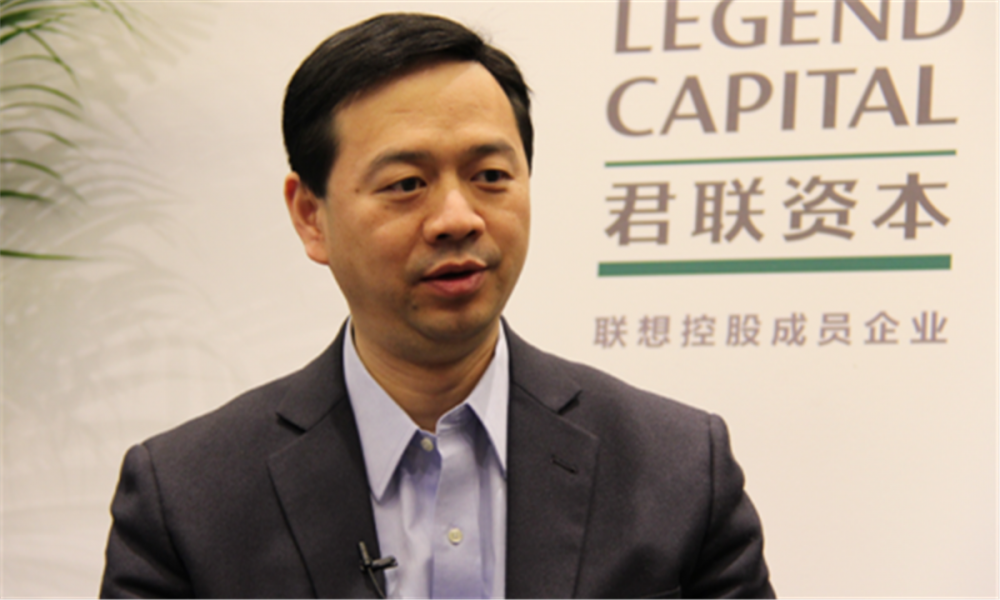Category: Business
Japanese mobile payments startup Coiney secures US$7.1 million funding from INCJ, DDH and SBI Investments
Tokyo-based Coiney, a mobile payments startup, announced today that it has completed an 800 million yen funding from SBI Investment, Dentsu Digital Holdings (DDH), and existing shareholder Innovation Network Corporation of Japan (INCJ), as well as an investment loan from Seibu Shinkin Bank.
The company will use the latest proceedings for talent acquisition, to recruit more engineers as well as to strengthen their sales and marketing team for expanding their payments solution and services – Coiney Terminal, Coiney Payge and Coiney Engine.
Launched in October 2012, before Square set foot in Japan, Coiney is a startup providing credit card payment devices whereby merchants can collect customers’ credit card payments via the pairing of Coiney with a smartphone.
Its flagship product, Coiney Terminal is a palm-sized gadget that facilitates smartphone-based payments solution for real stores. It works with smartphones via Bluetooth and Wi-Fi and is also compatible with IC cards.
Coiney Payge, on the other hand, is a web-based payments solution for online transactions, in addition to Coiney Engine, a tool which offers a credibility evaluation of business enterprises via artificial intelligence based on the accumulation of payments history and various statistical data collected from Coiney Terminal and Coiney Payge services.
“Initially, we thought that Coiney would spread among areas which facilitate small C2C payments, such as in the realms of the farmers market, beauty products, and restaurants among some, as it seems to be more convenient to settle a transaction via smartphone,” said the President of Coiney, Naoko Samata. “But the results were not as expected. At that time, it actually did not spread much.”
“Therefore, we changed directions, and expanded our services to facilitate larger transactions, focusing mainly in areas including medical hospitals and used-car dealership among some and it turned to be victorious.” She further adds.
On August 2013, Coiney raised over US$5 million from Credit Saison, a leading credit company in Japan. While on October 2013, Coiney raised US$8 million from Innovation Network Corporation of Japan.
At present, Coiney has a business partnership with Seibu Shinkin Bank via Credit Saison and it will continue to seek more collaborations with other local financial institutions.
Speaking on the future of Coiney, Samata also notes that “The present business model was implemented from 5 years ago. Until now, it is still said that we are moving towards a cashless world, but chances are we might even be moving towards an “empty-handed society” where there will be no cards or even smartphones in the future. If that were to be true, Coiney would continue to develop new services as well.”
By Vivian Foo, Unicorn Media
Singaporean iFashion acquires lifestyle marketplace Megafash for US$2.23 million
Singaporean online fashion and lifestyle platform iFashion Group, announced today that it has acquired independent designer brands marketplace Megafash for S$3.15 million (about US$2.23 million).
This cash and shares deal follows iFashion’s previous purchase of lifestyle and fashion brands INVADE, Dressabelle and Nose, making Megafash its fourth acquisition to date – an effort to strengthen iFashion’s portfolio and pave the way for iFashion’s listing slated in April or May this year.
Following this acquisition, iFashion will also appoint Jeremy Khoo, the CEO, and founder of Dressabelle, an O2O fashion marketplace that it has acquired last year for US$5.5 million as its new CEO to drive the company to the next level.
Launched in December 2015 by Lau Kin-Wai and Douglas Gan, Megafash initially commenced as a fashion-focused platform, but later extended its services to include lifestyle and designer’s products. At present, iFashion has a strong presence in both the physical and e-commerce platform, with 7 outlets operating in more than 15,000 square feet of retail space.
Megafash has also positioned itself as a curated marketplace, working with more than 2,000 Indie brands internationally, in addition to a 30 percent of their in-store brands being sold exclusively through the Megafash platform which currently operates in Singapore, Indonesia, and Thailand. In 2016, Megafash’s annualised revenue was reported to be S$8 million (about US$5.7 million).
“It’s an exciting time for us at Megafash. The brand has grown significantly, from 3 stores in 2015 to 7 stores currently. In times of economic downtown, we are pleased to say that our revenue grew five times from 2015. Megafash continues to grow as Singapore’s leading lifestyle marketplace. In fact, in December we received as many as 2,000 orders a day.” Jiawen Ngeow, the CEO AND Co-founder of Megafash said.
Backed by Fatfish Internet Group, Sovereign Capital, and Fashion DK Group among some, iFashion’s offers mentorship, marketing, logistics, warehousing, sales, fulfillment, and financial services for online entrepreneurs who aim to grow their respective businesses and widen their user base.
“Our acquisition of Megafash completes our line-up of brands for our IPO. We believe that the acquisition strengthens the iFashion group by extending our offerings from mainly fashion products to lifestyle. In the recent months, iFashion has seen continued growth and change, including the appointment of our new CEO. We look forward to an exciting time ahead of us, and we are thankful for the support,” said Jeneen Goh, the Corporate Affairs Vice President of iFashion Group.
As part of the expansion plans, Megafash is looking to expand operations overseas and to double its retail outlets in Singapore.
By Vivian Foo, Unicorn Media
Chinese VC firm Legend Capital secures US$243 million for seventh venture fund
Chinese venture capital firm Legend Capital, the venture and growth capital arm of China’s Legend Holdings Corporation, has raised US$243 million last Friday for its seventh vehicle.
Based on a SEC filing, the LC Fund VII aims to raise US$374 million for its latest fund and is currently still in the process of raising the remaining US$132 million. The vehicle has begun its fundraising process about a year ago, having filed with the U.S. Securities and Exchange Commission in February 2016.
Its previous sixth US dollar-denominated fund was raised in May 2014, whereby Legend Capital has attracted five new investors, raising US$500 million in a span of under six months.
Founded in 2001, Legend Capital focuses on innovation and growth enterprises with operations in China or related to China. The VC firm claims to manage several US dollar and RMB funds with its total assets under management at over RMB30 billion (about US$4.37 billion).
Additionally, Legend Capital has invested in more than 300 companies including Beijing biochemical firm Kawin Technology, Chinese gaming company iDreamSky, and digital entertainment company Happy Elements among some.
Among its investment portfolio, 50 have successfully listed on domestic or overseas capital market while around 40 companies achieved exit through M&A. Recent exits include Shandong Linglong Tyre Co., Ltd., which was listed on the Shanghai Stock Exchange in July 2016.
The venture capital firm recently co-led a US$100-million funding round in Chinese boutique hotel operator AtourHotel. While in November, it had invested US$20 million along with the investment arm of Alibaba Group – Riverhill Fund in Chinese online seafood marketplace Gfresh.
By Vivian Foo, Unicorn Media
Razer acquires Nextbit, the maker of cloud-based smartphone Robin
Razer, an American gaming company originally based in Singapore, has recently acquired the majority assets of Nextbit Systems Inc. in order to enter the smartphone industry.
Although financial details of the transaction, which has closed in January, were not disclosed, Razer has bought most of the assets of Nextbit and will bring the management and employees of Nextbit onboard.
“Nextbit is one of the most exciting companies in the mobile space,” says Razer’s co-founder and CEO Min-Liang Tan. “Razer has a track record of disrupting industries where our technology and ability to design and innovate have allowed us to dominate categories with longstanding incumbents.”
“With the talent that Nextbit brings to Razer,” Tan further adds, “We can look forward to unleashing more disruption and growing our business in new areas.”
Founded in 2013 by early Android Veterans Tom Moss and Mike Chan, Nextbit is the company that produces the Indie smartphone known as Robin. Built around a cloud-based platform, Robin specialises in the seamless integration of Android OS whereby it would automatically store data on the cloud.
Different from other third-party cloud services like G-Drive and OneDrive, Robin will store only the data which is not frequently used, while automatically placing it to the local storage once the data is being frequently accessed.
In September 2015, the company launched a Kickstarter and soon reached its US$500,000 goal, after which it announced the Robin cloud phone. In May 2016, the phone was launched in India at Rs 19,999 with 100GB cloud storage space.
Post-acquisition, Nextbit will operate as a standalone business unit under its own management and apart from the ongoing business of its parent company. Additionally, Nextbit will continue with product support and software updates for its Robin smartphone.
“In order to reach a wider audience and continue our mission, we decided to join with a larger brand,” says Tom Moss, the Co-founder and CEO of Nextbit. “We’re lucky to have found a company in Razer that shares our value of pushing the boundaries of what our devices can do.”
This also marks Razer’s second acquisition in three months, with audio legends THX, a company of whom they have held a long standing partnership with, joining the Razer family back in October last year.
By Vivian Foo, Unicorn Media
Chinese Tianmei Beverage Group to IPO on Australian Securities Exchange by February 2017
Tianmei Beverage Group Corporate Limited, a Chinese F&B company, is going through with its initial public offering (IPO) on the ASX board which is slated to be listed by February 2017.
Led by Phillip Capital, Tianmei’s IPO will see between 40 and 50 million new shares issued at the pricing of A$A0.20, which will raise the Chinese F&B company about A$8 to A$10 million.
Existing shareholders currently hold 120 million shares, in which its market capitalization post-IPO is estimated to be between A$32 and A$34 million with a free float cap of about 30 percent.
Based in Guangdong, Tianmei produces a range of premium bottled water products, as well as retailing fast-moving consumer (FMCG) products through an established network of 941 retail stores and supermarkets.
Aside from bottled spring water, the company also sells a range of 530-millilitre baby water branded under Tianmei label, which is targeted at parents. The bottle holds “premium” spring water that has undergone special treatment and packaged under high-pressure sterilisation.
As part of its public listing on the ASX, Tianmei is also in search of partnership with Australian producers to sell their products through the existing retail network to China, alongside Tianmei’s own range of beverages.

Anthony Sherlock, the Chairman of Tianmei Beverage Group
“Expanding to China has always been a challenge for Australian companies. China has a vast and diverse population spread over a huge area, which means that trading practices, dialects, and product regulations can vary greatly in different provinces – especially when you get into the outer regions. It’s a much bigger and more complicated market than Australia,” said Anthony Sherlock, the Australian Chairman of Tianmei Beverage Group.
At present, Tianmei has entered into MOUs with two Australian firms, a dairy producer that makes milk, butter, and yogurt products as well as a food and beverage distributor.
“The best way to do business in China is with a trusted intermediary that understands the landscape and already has strategic partnerships in place. Like most people, Chinese executives generally prefer to deal with people they are familiar with and who have an established track record,” Sherlock adds.
Moreover, given that Australia possesses a significant brand strength with regard to high health and environmental standards, this will bring benefits to the exportation of Australian FMCG products to China.
Proceeds from the IPO will be used to fund the acquisition of the Qianlifeng water processing plant in Hunan province, which Tianmei uses for water processing, in addition to working capital purposes, to drive product promotion in China, and to provide security of supply for the firm.
By Vivian Foo, Unicorn Media





